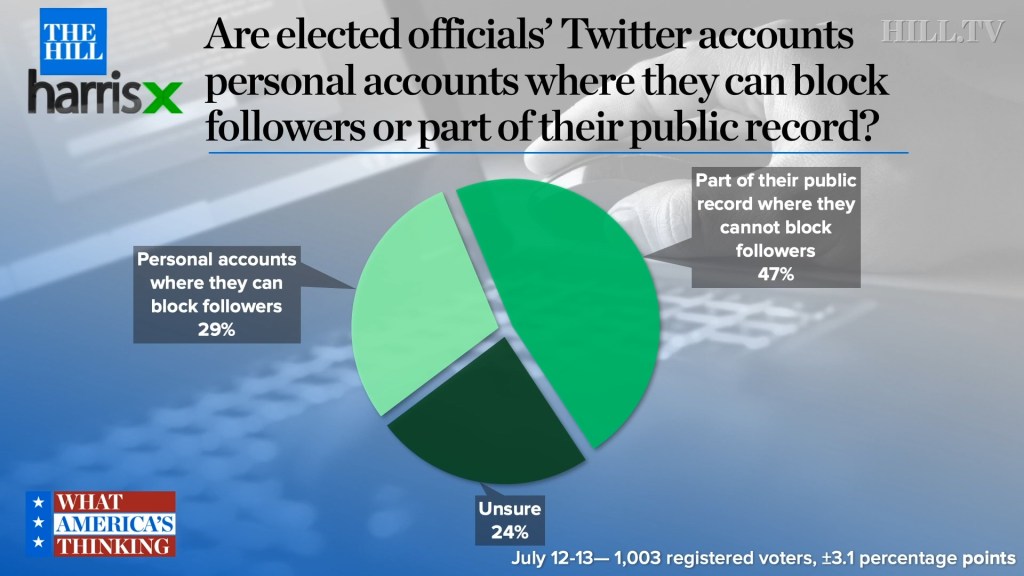Almost half of Americans say elected officials should not be allowed to block followers on Twitter, according to a new Hill-HarrisX poll.
The survey, released on Tuesday, found that 47 percent of registered voters said politicians shouldn’t be allowed to block followers, compared to 29 percent of respondents who said the accounts should be treated as personal ones that allow the user to block followers.
Voters were divided along party lines.
 According to the poll, 55 percent of Democratic voters said politicians and other public officials should be able to block people on Twitter, compared to 37 of Republican voters who said the same.
According to the poll, 55 percent of Democratic voters said politicians and other public officials should be able to block people on Twitter, compared to 37 of Republican voters who said the same.
Almost half of independent voters — 48 percent — said the accounts are part of the public record and users cannot be block blocked.
The survey was conducted after a federal appeals court ruled last week that President Trump is not permitted to block Twitter followers from his official account.
The administration argued that Trump had been blocking users in his personal capacity, but the judges disagreed.
They concluded that the president’s tweets are part of official records, and that he “may not selectively exclude those whose views he disagrees with.”
The lawsuit was brought on behalf of seven people who had been block by Trump on Twitter.
But Trump isn’t the only politician involved in legal action over Twitter practices.
Former state assemblyman Dov Hikind (D) and Republican congressional candidate Joseph Saladino said they are suing Rep. Alexandria Ocasio-Cortez (D-N.Y.) over being blocked from her personal Twitter account.
“I have officially filed my lawsuit against AOC for blocking me on twitter,” Saladino tweeted. “Trump is not allowed to block people, will the standards apply equally? Stay tuned to find out!”
Ocasio-Cortez did not respond to a request for comment from The Hill regarding the legal challenge.
The Hill-HarrisX online survey of 1,003 registered voters was conducted July 12-13. The margin of error for the sample is plus or minus 3.1 percentage points.
—Tess Bonn
hilltv copyright